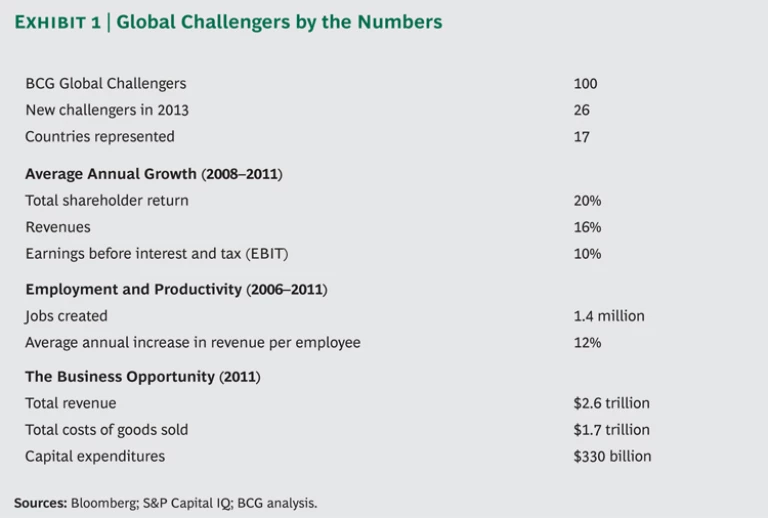The Game Has Changed
Emerging markets have become the world’s economic engines. They are large and becoming larger, thanks to annual GDP growth exceeding 6 percent and a rapidly growing class of consumers with disposable income.
These markets have become highly prized by companies everywhere, not just for their growth but also as sources of talent, capital, and companies. Over the past five years, more than 1,000 companies headquartered in emerging markets have reached at least $1 billion in annual sales. Many of these are content to focus on their home market, while others are expanding abroad. And many of those that are going overseas aspire to be global leaders in their industries. These are the global challengers. They are the companies that will shape the global economy over the next decade.
In publishing our fifth edition of the BCG global challengers—a list of 100 fast-growing and fast-globalizing companies from rapidly developing economies (RDEs)—we hope to illuminate this new economic terrain and its players.
Coming of Age
Global challengers have arrived; these companies from RDEs are not mere curiosities operating in distant regions. Collectively, the challengers purchase more than $1.7 trillion of goods and services and invest more than $330 billion in capital expenditures a year. (See Exhibit 1.)
Global challengers are full-fledged competitors making game-changing moves. They are winning with a broad range of strategies and capabilities. In doing so, they are fundamentally altering industries ranging from aircraft manufacturing and medical devices to e-commerce and mobile telephony.
The Boston Consulting Group (BCG) published its first list of 100 global challengers in 2006. The original list was meant to be a wake-up call to executives of multinationals. Today, global challengers are not just competitors but also lucrative customers and potential partners. More broadly, they are emblems of the new order in which emerging markets will power global growth.










